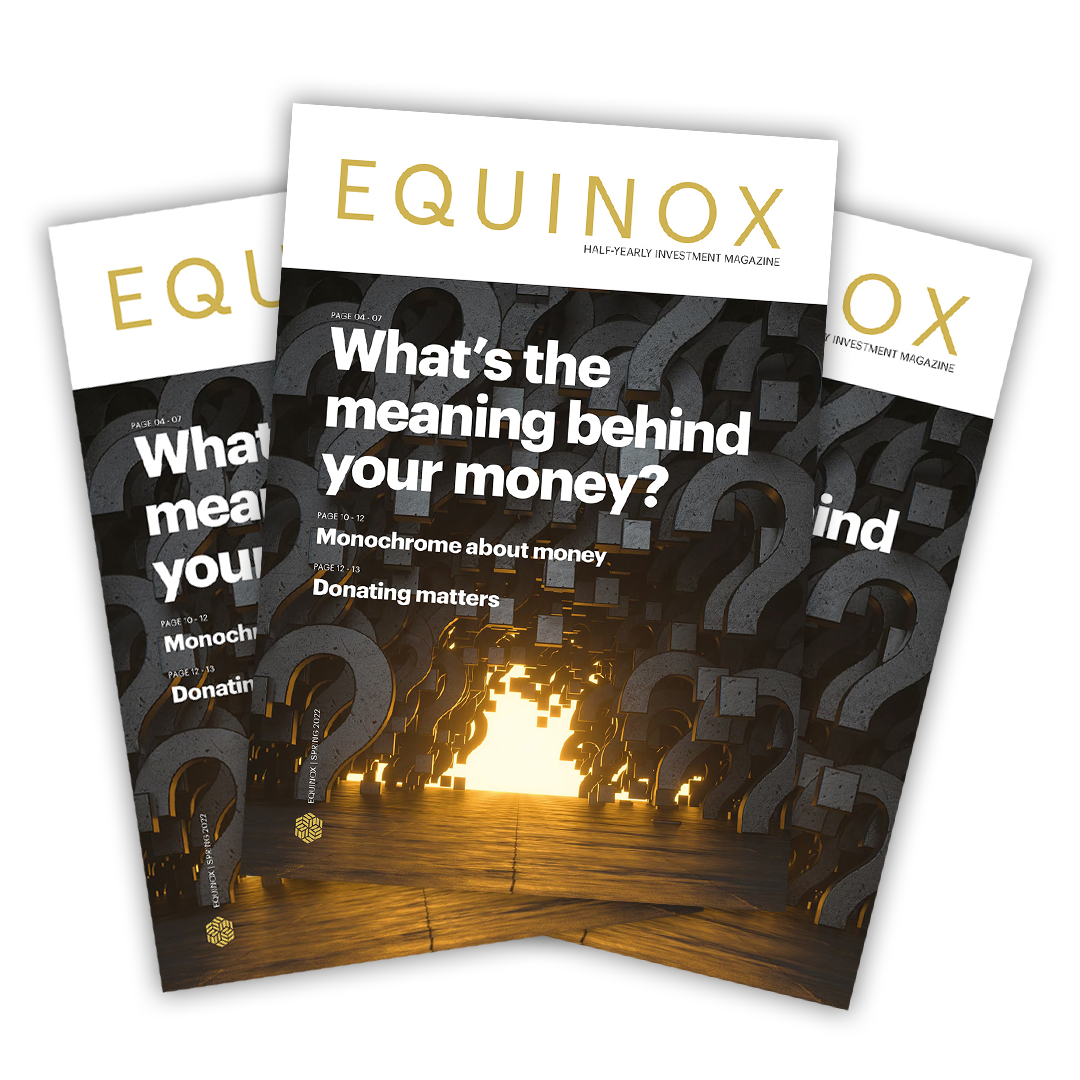This article is taken from our spring 2020 edition of Equinox. You can view the full version here.
We can’t predict when your roof might leak for example, but we can make sure you’ll have enough money to fix it
At Equilibrium, we are strong believers in the merits of a financial plan. We devote a lot of time to making sure we understand what our clients want their wealth to do for them. We organise their wish list, prioritise different objectives and create an overall strategy to meet their goals.
Ultimately, our aim is to give them clarity and confidence around their finances so that they can make informed decisions about their money and enjoy peace of mind. It’s only when we know what needs to be built that we can make sure we’re providing clients with the right tools for the job.
The best way to make fate laugh is to show it your five-year plan
The first thing to recognise with any financial plan is that you know it’s wrong the moment you make it.
You know it’s wrong because none of us can accurately predict what is going to happen in our own lives over any reasonable timeframe, let alone the wider economy and stock markets.
But does that mean you shouldn’t have a plan? As American financial planner and author Carl Richards wrote, “Don’t be committed to the guess, be committed to the process of guessing.”
Ultimately, if you make one financial plan and try to follow it for the rest of your life, it will inevitably be wrong. It’s almost like trying to use a road map from 1980 to drive across Europe; half the countries aren’t there anymore, and you’ll probably get lost.
This is why your financial plan needs to be updated regularly. That way, it can act more like a GPS. You know where you’re trying to get to and you know you won’t get there in a straight line; but at least it will tell you if you start driving in the wrong direction.
Beware of GIGO
GIGO stands for ‘garbage in, garbage out”. Essentially, if you put the wrong inputs into a spreadsheet, then you’re likely to get the wrong outputs. The same is true of a financial plan.
As I said before, part of planning for the future is accepting that the future is uncertain. We can’t predict how long we’ll live or whether or not we’ll need additional care in later life. And, as the prospect of living for 100 years is no longer confined to science fiction, these uncertainties can become fairly daunting.
So, if our aim is to give clients confidence, it’s vital that we put every plan through its paces by including robust assumptions for expenditure. We can’t predict when your roof might leak for example, but we can make sure you’ll have enough money to fix it.
What’s more, we can go a step further by stress testing for different scenarios and looking at the consequences.
“What if I need to go into a care home?”; “What if my children need support?”; “What if my partner dies earlier than me?”
These aren’t always the happiest scenarios to talk about, but spending a little time discussing them can provide reassurance and confidence for a long time.
Everyone has a plan until they get punched in the face.” These memorable words from ex-heavyweight champion boxer Mike Tyson are true of all plans, and financial plans in particular.
When we’re building plans with our clients, we’re planning over a lifetime, but that doesn’t stop us worrying when we’re faced with economic and geopolitical uncertainty and volatile times. The current crisis has certainly put this in the spotlight.
As a financial planner, I do many different jobs for my clients. Arguably, one of the most important ones is keeping a calm head and helping them to navigate testing times.
It’s important not to confuse risk with volatility
The only risk that matters is not having enough money at the time you need it to the live the life you want.
Would you still have the capacity to live your life if an investment failed? Markets will always involve volatility. It is the nature of the beast.
Here at Equilibrium, we don’t want you to be exposed to more risk than you need to achieve the life you want.
Keeping a level head and a long- term view in a time of panic, with market volatility setting off alarm bells in your head, is not an easy thing to do. Despite everything, you’ll still be going up against human nature.
Staying focused on your long- term financial plan and your end objectives is crucial. This is where a financial planner can play a pivotal role.
So, if you’re panicking about markets and feel worried your plan may not be shipshape enough to weather another storm, please get in touch.


